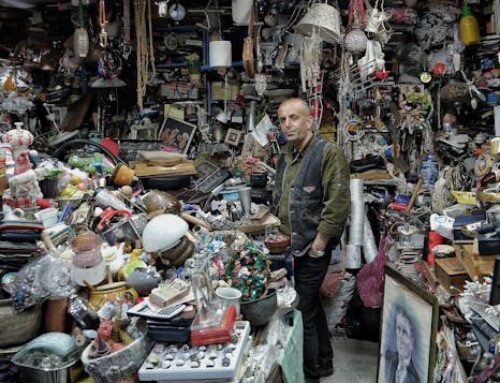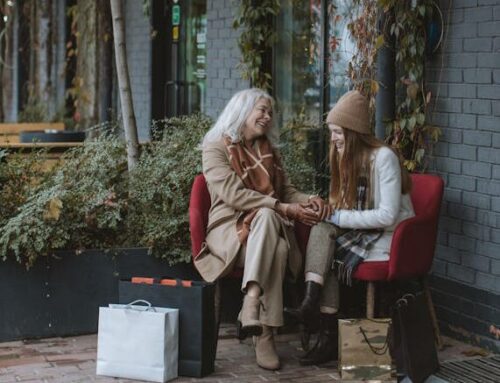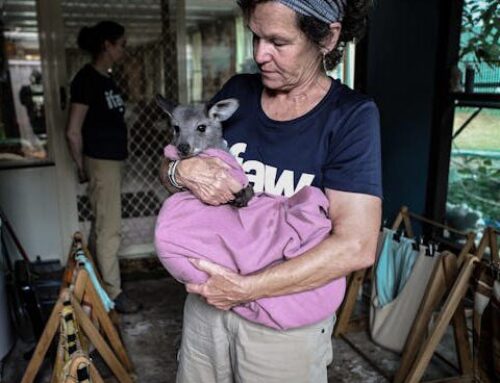Marita Ellers* was lucky. Her parents lived three blocks away in Greater Detroit. She enjoyed a close relationship with them and could tend to their needs as they continued to age, which was well into their 90s. They both passed away when Marita entered her 60s as she helped with their hospice care needs. But having never married, and with only a chronically ill brother and sister-in-law living in Seattle, reality set in when Marita needed major surgery which would incapacitate her for weeks or possibly months.
Unlike her parents who had her to depend on, Marita had no one. Of course there was her circle of friends, but as it turned out most were married. She’d never thought about cultivating relationships with single people; it had just never occurred to her. Her married friends had busy lives of their own with spouses, adult children, and grandchildren, and the last thing Marita wanted to do was impose on them during a long recuperation.
Ellers is part of a growing trend of “elder orphans” and “solo agers”: individuals ages 55-plus who live alone without a spouse, partner, children, or other family around at all, or if they are around, they cannot be relied upon sometimes due to family dynamics. In short, these individuals have no real support network—no safety net. In a survey of 500 elder orphans, nearly 70 percent hadn’t identified someone to help them with health problems, while 35 percent had no friends or family to begin with who could help.
Studies show the demographic’s numbers are on the rise and the group is so ubiquitous, it even has its own Facebook page with nearly 10,000 members to provide support through shared experiences. If you fall into this category, what are some of the steps you can take to prepare for successful aging?
Planning to Live as a Solo Ager
The best kind of plan for almost anything is, naturally, to plan. If we don’t do that, we may leave critical decisions to disconnected relatives, acquaintances, or ultimately overburdened, court-appointed strangers who have no idea what we need and want. Considering herself staunchly independent, Marita’s lack of planning was twofold: she was in denial about her own aging process, and at the same time she figured the experience of seeing her parents through life’s end stages would enable her to apply all that knowledge to herself if the time came.
While in some respects her experience puts her a step ahead of many of her contemporaries, her reasoning does not allow for what can happen when her mobility is compromised, cognitive capacity is diminished, or myriad other conditions where she may need more help than she can give to herself. Marita’s upcoming surgery was a wake-up call, making her acutely aware of what steps she should have taken and scrambling to put as many as possible in place.
Understand the Levels Between Senior Independence and Assisted Living
Yes—face things and research them, laying them out as early and comprehensively as you can. Avoidance will only get you so far. The antidote for anxiety, feeling isolated, and depression—three issues elder orphans and solo agers have expressed are problems for them—is action. Goethe said, “Be bold, and mighty forces will come to your aid.” Keren Brown Wilson, known as the pioneer of assisted living, says there are many steps and levels between independence and dependence. She recommends interdependence: a mutual reliance on one another on the path to better aging.
Think about trained caregivers for when you may need help with activities of daily living (ADLs) and a fiduciary or senior care advisor for your financial needs including Long-Term Care insurance. Go out and cultivate friendships if you don’t already have them with other elder orphans or solo agers. People in similar situations may have more time to give you if the need arises, as you can give to them.
Build a Senior Support Network That Works
If you don’t know how to go about something, network with people in your community. This may include professionals and others you know at work, where you volunteer, doctors, dentists, lawyers, librarians, teachers, salon and store owners, as well as neighbors. We all age and ahead of that most of us have aging parents or had parents who got up in years. That kind of personal experience is invaluable in terms of recommending others they trust who can help you put things in order now and down the line.
Communities for Successful Aging—Get Involved!
With the rising tide of graying Baby Boomers, city and business leaders and policymakers need to embrace the task of developing solutions for better aging. This needs to be done on a nationwide basis. Elder orphans and solo agers are affected at even deeper levels than their counterparts who are surrounded by family and friends in a position to help. In some locations, there are more resources already in place in the realm of affordable transportation, technology training, respite care, senior advocacy, nutrition oversight, and home health care. But we have a long way to go.
If you are an elder orphan or solo ager looking for involvement in your own community, turning your attention to the cause can bring awareness and even expedite results from which everyone can benefit.
(* Name has been changed for purposes of anonymity.)
“Planning to Live as an Elder Orphan or Solo Ager,” written by Beth Herman, Amada blog contributor.



